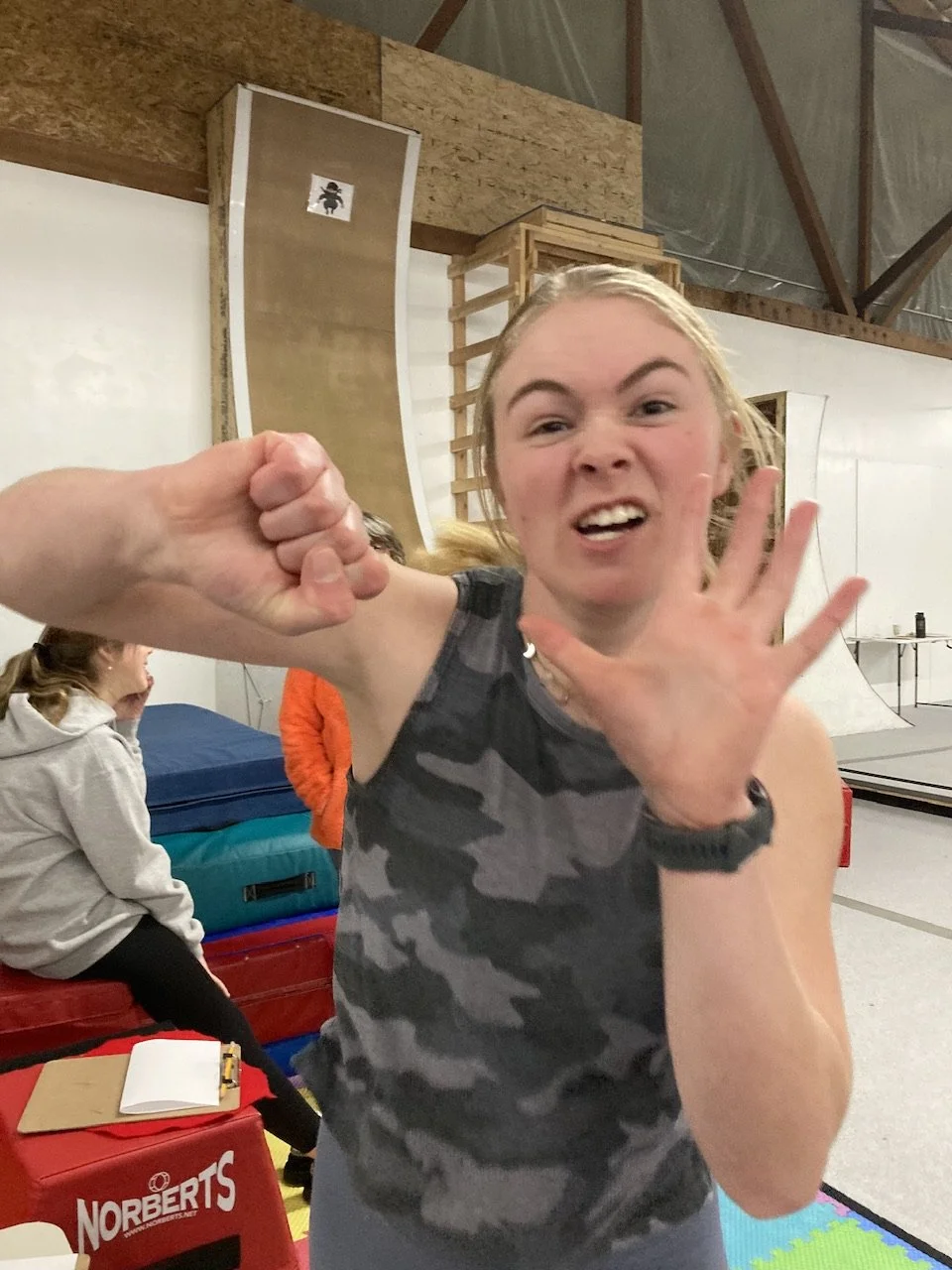Self Defense
I have a lot of confidence in my daughter, Abby, but I worry about what she might face when she spreads her wings in Houston next fall.
As the fourth-largest city in the U.S., Houston has a wider variety of good and bad than Conrad, home to about 2500 citizens.
So when Golden Triangle Gym offered a self-defense class with Claude Smith, I signed us up.
I’ve known Claude several years.
I have a lot of respect for his advice about safe food manufacturing and life in general.
Also, Claude holds an advanced black belt in karate.
I expected to learn practical self-defense strategies.
Claude exceeded my expectations.
This wasn’t the typical grab-the-predator’s-finger-and-bend-it-back type class.
Claude emphasized avoiding dangerous situations in the first place.
Listen to your intuition, that sixth sense that we all have and most of us ignore.
Pay attention to what is going on around you.
Take out one earbud.
As you walk past someone, make brief eye contact then continue past.
Look like a pain in the neck.
Claude categorized violence into two categories -- social or asocial.
Social violence occurs when a person has an audience and wants to gain status.
Social violence often can be diffused.
“Apologize even if you are not wrong and leave,” Claude advised. “You just want to go home and have dinner.”
Asocial violence happens when a predator wants something from you – usually money or power. An asocial predator does not want an audience.
A predator often uses dialogue, deception and distraction to get close to a potential victim so watch for the pattern.
A predator will start a conversation or ask a question.
Those of us who have been trained since childhood to be nice will want to please so we will respond.
Often, a predator will try to take advantage of person’s decision-making process.
Each of us first observes a situation, then tries to figure out what is happening, then decides, then acts on that decision.
Claude calls it OODA – Observation, Orientation, Decision, Action.
If a predator asks a random question, I spend time figuring out the answer and why he asked me before I decide whether to answer.
I’m vulnerable to an attack at that moment.
Fortunately, predators use that same decision process and face the same vulnerability.
Claude taught the class to keep the predator trying to figure out what is happening.
If I’m not physically restrained, I can point my finger at the perpetrator, pace back and forth and yell.
This confuses the perpetrator until he decides I’m probably crazy and not worth the effort.
If I am physically restrained, Claude advised asking a random question before hitting the predator in the jaw, the most vulnerable spot that is probably within reach.
Then run.
Claude never once advised us to be nice.
“Rake their eyes, over and over until they give up. They will,” he said. “If he tries to kiss you, hold his head in two hands and push your thumbs into his eyeballs. Don’t worry. They won’t pop out.”
Thanks, Claude. I wouldn’t want to smear my manicure.
He also taught us to fall correctly so we don’t dislocate a shoulder or wrist, severely limiting our ability to ward off our attacker.
Claude shared more human nature when he talked about yelling for help.
He said to yell “Fire,” not “Rape.”
People will be curious about a fire, but they won’t want to get involved in a rape.
That seems to be flawed, but the moment I need help is not the moment to judge human nature and its impact on society.
I appreciated Claude’s lessons.
After all, I won’t be in Houston to help Abby stay safe.
Claude’s advice will.
